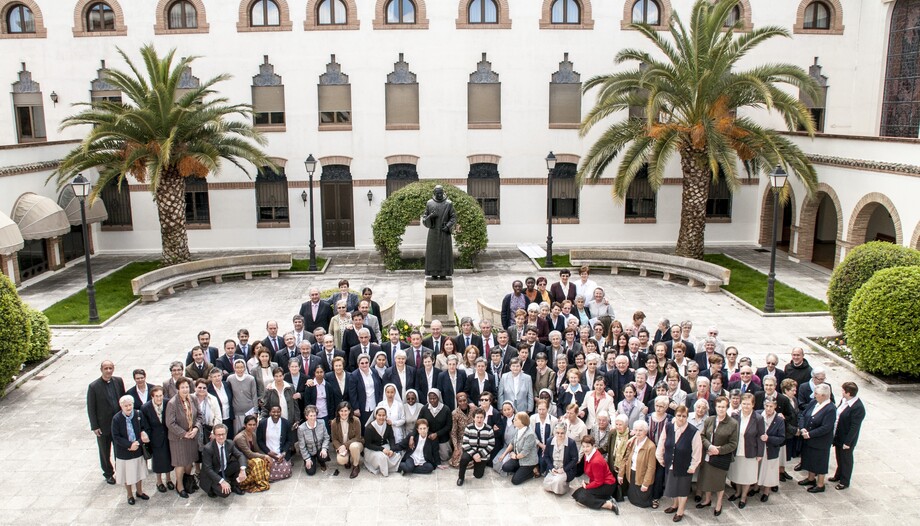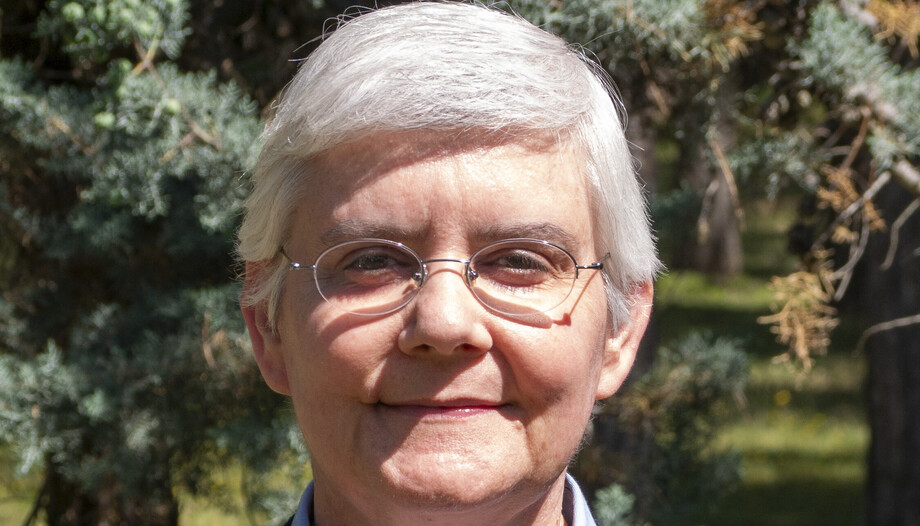The Sisters Hospitallers of the Sacred Heart of Jesus is a religious congregation of women passionate about life, united by love, prayer and service, in a word: by hospitality. Their mission is to carry the evangelizing message of Jesus as the Good Samaritan and Mary as the first Hospitaller through the witness of their presence and assistance to the most vulnerable.
– Supernatural Congregation of the Sisters Hospitallers was founded in Madrid (Spain) in 1881 by St. Benedict Menni, a priest of the Order of St. John of God, together with María Josefa Recio and María Angustias Giménez, chosen by God to respond to the situation of health neglect and social exclusion of women with mental illness at the time, combining two fundamental criteria: charity and science.
Sister Idília Maria Carneiro was elected Superior General of the Hospitaller Sisters of the Sacred Heart of Jesus last May. The election took place during the XXI General Chapter, where 34 members of the Congregation gathered in Rome to begin a period of discernment and reflection on the charism of the institution.
"The General Chapter is the most important event in the life of a Congregation, because in it an evaluation is made of what has been done and lived during the sexennium, the future is planned, seeking to respond to the needs of today, and the sisters of the General Government are elected who are to guide the life and mission of the Congregation in the next six years", anticipated the then Superior General, Sister Anabela Carneiro, (sister of the current Superior), on the eve of the meeting that took place under the motto: "Clothe yourselves with bowels of mercy. Prophetic signs of hope and of God's closeness to suffering humanity".
Idília Maria Carneiro was born in Mozambique in 1966. She is the fourth of five siblings, three of whom are Sisters of the same congregation. Sister Idília Maria grew up in a family with deep Catholic roots, which formed her as a person and woman of faith, which is also the origin of her consecrated vocation: "I learned from my parents to live the Christian faith through prayer and active charity. I learned to pray the rosary every day and to pay special attention to the poor". Also decisive in his life was everything he experienced in the parish, where he was part of a group of young people who received catechesis.
Sister Carneiro joined the Sisters Hospitallers of the Sacred Heart of Jesus in 1984. She holds a degree in Social Work from the Higher Institute of Social and Political Sciences of Lisbon and a master's degree in Spirituality and Health Ethics and a postgraduate degree in Human Resources Management. In this interview with Omnes she talks about her vocation and the charism of the Congregation to which she belongs.

What does the word "vocation" mean to you?
- It is a gift of gratuitous love that God offers us. For this reason, the first attitude I ask of God is one of gratitude and then an attitude of service, because love is answered by loving. Vocation is a unique and personal call that the Lord makes to each one of us to live and give our life in a particular way, according to the spirit to which God calls you.
In our Congregation, it is a hospitaller vocation, a call to live with Jesus, the Good Samaritan, the adventure of being close to the pain of the sick, responding with closeness, listening and understanding.
How did you discover God's call to follow Him as a hospitaller Sister?
- The discovery of my vocation was a surprise, because it was not on the horizon of my life. At the age of 16, I had my first contact with the life of the Sisters Hospitallers in Braga (Portugal) when I participated in a weekend of activities for young people. I remember how difficult it was to have that first contact with the sick, especially those who were more seriously ill, but little by little something opened up inside me and I began to feel that my life had a different horizon and that it was widening the more I gave myself to it.
The experience of serving the sick gave my life a 180-degree turn: it awakened in me a perspective of life based on love and gratuitousness. I realized that it was with the sick that I felt happy. At the same time, the contact with the sisters, the joy they showed in dedicating their lives to the service of the sick, the knowledge of the Congregation and of the founders - Benito Menni, María Josefa and María Angustias - as well as their experience of vocational discovery, the moments of prayer and fraternal encounters... made an impression on me.
My inner journey of listening to God and searching for what He dreamed for me has made me see my life, not from my own perspective but from God's perspective: recognizing that I am loved by Him and that this love awakens me every day to love and serve my brothers and sisters.
How does this call materialize in everyday life?
- The hospitaller charism identifies us more and more with the compassionate and healing Jesus, who went through the world healing everyone and doing good. Hospitality is about putting the person at the center, offering space and time, attention and care, humanity and resources to the most vulnerable. It is also a way of life that, on a daily basis, speaks of welcome, of acceptance of others as they are, of mutual respect and an open heart, and also of allowing oneself to be welcomed. We all need to give and receive.
Like the Good Samaritan, we are especially challenged by the suffering and need of those who are on the roadside and we cannot pass by because we feel called to serve suffering humanity, to welcome the needy, to universality, to love, to service, to mutual help and care.
As Sisters Hospitallers we live it from our consecrated life, in community, that is, sharing our vocation with other sisters, feeling that we are also sent to evangelize and bring the Good News of God's Hospitality to our brothers and sisters who suffer and feel more fragile. Our community also includes collaborators and lay people, because to be hospitallers is to be builders of peace and fraternity, sowers of hope and dignity, because we recognize Jesus in people suffering from mental illness and intellectual disabilities. Our mission is to care for the whole person, uniting science and humanization, especially for the most disadvantaged and those in greatest need, respecting and defending life.
What can people who follow this particular charism contribute to the world?
- The first thing we bring is precisely heart and compassion, closeness and humanity, qualified attention according to the advances of science and technology in the area of health, in accordance with the principles of the Social Doctrine of the Church. We want to continue being an Institution that contributes to a more just and fraternal society in which the most vulnerable people, because of their situation of mental illness and exclusion, and their families, effectively have a place, a voice, a vital space that helps them to feel and recognize themselves as persons, loved and respected, accompanied and integrated. To those who today are so often discarded in our society, we want to say that for us, for God, they are the first.
Society is seeing how mental health problems are multiplying and we want to be there, giving humanizing and updated answers to today's needs, as our founder, St. Benedict Menni, did.
This way of living is clearly not fashionable; it is often misunderstood or even rejected without even knowing it. To these people who reject this way of living, how would you explain their choice?
- We chose this life because, from the experience of feeling mercifully loved by God, we want to be witnesses that the compassionate and merciful Christ of the Gospel remains alive among men and women, and this impels us to be women of God, at the service of the suffering person and to evangelize through hospitality.
It is the mercy of God that heals and generates communion, that opens horizons of unlimited and universal love, and gives meaning to our lives. It is the choice to live precisely from a dignifying service to people with psychological suffering. This is the option that our institution chooses and the legacy we received from our founder St. Benedict Menni: the person at the center, the person in whom we recognize the living image of Jesus, the theological place where God reveals himself to us and where we serve and care for life, sacred and inviolable; the person as the subject of the therapeutic process and of the life project.









